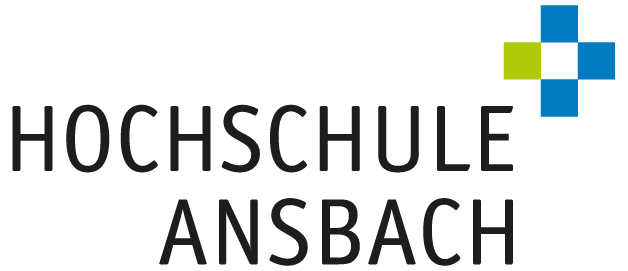
PV production forecast using hybrid models of time series with mach
Haupt, Thomas; Trull, Oskar; Moog, Mathias (2025)
Energies 18 (11), 2698.
DOI: 10.3390/en18112692
Open Access Peer Reviewed
Photovoltaic (PV) energy production in Western countries increases yearly. Its production can be carried out in a highly distributed manner, not being necessary to use large concentrations of solar panels. As a result of this situation, electricity production through PV has spread to homes and open-field plans. Production varies substantially depending on the panels’ location and weather conditions. However, the integration of PV systems presents a challenge for both grid planning and operation. Furthermore, the predictability of rooftop-installed PV systems can play an essential role in home energy management systems (HEMS) for optimising local self-consumption and integrating small PV systems in the low-voltage grid. In this article, we show a novel methodology used to predict the electrical energy production of a 48 kWp PV system located at the Campus Feuchtwangen, part of Hochschule Ansbach. This methodology involves hybrid time series techniques that include state space models supported by artificial intelligence tools to produce predictions. The results show an accuracy of around 3% on nRMSE for the prediction, depending on the different system orientations.
Home-Energy-Management-Systeme (HEMS) Marktüberblick für Deutschland 2025
Haupt, Thomas; Jungwirth, Johannes; Vaidya, Haresh; Hofmann, Gerd (2025)
Wissenschaftliches Poster auf dem 40. PV Symposium Bad Staffelstein 2025.
DOI: DOI:10.13140/RG.2.2.17618.88007
Open Access
Home-Energy-Management-Systeme (HEMS) Marktüberblick für Deutschland (2025)
Haupt, Thomas; Hofmann, Gerd; Vaidya, Haresh; Jungwirth, Johannes (2025)
Conference Proceedings 40. PV Symposium Bad Staffelstein 2025.
DOI: 10.13140/RG.2.2.17618.88007
Open Access
Das zentrale Ziel eines Home-Energy-Management-System (HEMS) besteht darin, den Ladevorgang von Elektrofahrzeugen sowie den Betrieb von Wärmepumpen und Heizstäben (Power-to-Heat) in Kombination mit elektrischen und thermischen Speichern zeitlich zu flexibilisieren. Auf der einen Seite ermöglicht die Flexibilisierung durch ein HEMS einen kostenoptimierten Betrieb durch die Erhöhung des Eigenverbrauchs der Photovoltaikanlage (PV-Anlage) sowie von dynamischen Stromtarifen. Auf der anderen Seite besteht die Notwendigkeit flexible Verbraucher, sogenannte „steuerbare Verbrauchseinrichtungen“ (SteuVE), und zukünftig PV-Anlagen durch ein HEMS in das Stromnetz zu integrieren. Jedoch gibt es derzeit keine umfassende Marktübersicht beziehungsweise Markttransparenz.
Comprehensive Analysis of Energy Transition Strategies in Rural Germany – A Case Study of Treuchtlingen
Hofmann, Gerd; Haupt, Thomas; Obermeier, Marco; Fischer, Tomy; Vaidya, Haresh; Jungwirth, Johannes (2024)
Hofmann, Gerd; Haupt, Thomas; Obermeier, Marco; Fischer, Tomy; Vaidya, Haresh...
1st International Symposium on Energy System Analysis (ISESA) “Next level of security of supply: a resilience strategy for the energy transition" 2024.
Optimierung der sektorübergreifenden, regenerativen Energieversorgung in Quartieren, Abschlussbericht
von Blumenthal, Astrid; Haupt, Thomas; Jungwirth, Johannes (2023)
Online Publikation. urn:nbn:de:bvb:861-opus4-23649.
Open Access
Decarbonizing Municipal Utlites: A Strategy for Achieving CO2-Neutrality by 2035
Hofmann, Gerd; Haupt, Thomas; Jungwirth, Johannes (2012)
Vortrag auf der 9th International Conference on Smart Energy Systems, September 2023.
Municipal utilities (so-called Stadtwerke) play a crucial role in terms of the decentral Energiewende in Germany. The national way to accomplish the energy transition with a massive expansion of renewables requires local actors to participate actively. Thus, we developed a decarbonization strategy to supply a 12.000+ municipality CO2-neutral till 2035. This considered that the influence of the municipal utility is limited to its own electricity and natural gas grid as well as municipal buildings and vehicles.
Our study focused on the optimal expansion of sustainable energy generation coupled with short- and long-term storage options and transformation of consumption (mobility, power-to-heat, power-to-gas) of the existing local distribution grids. We aimed for a high autarky respecting long-term economic efficiency and high self-consumption of renewables. Natural gas should be replaced by alternatives as far as economically possible.
Energy consumption was determined and separated into domestic, commercial, and industrial and together with hourly generation profiles from existing renewables used to remodel the known annual consumption. Likewise, the hourly generation profiles from existing renewables were considered. The resulting degree of self-sufficiency (e.g., physical autarky) and annual share of renewable energy (accounting self-consumption) was calculated.
From this status quo, we developed future scenarios to answer the following questions:
· What impact will the transformation to power-to-heat and electromobility have on the electricity demand up to 2035?
· How do the parameters self-consumption and self-sufficiency behave for the respective expansion of the technologies PV systems, wind turbines and battery storages?
· What is the techno-economic optimal combination of PV systems, wind energy systems and battery storage and what is the potential for hydrogen?
· In what way does the injection of biogas and hydrogen affect the electricity and natural gas grids?
Based on the load and generation profiles, we have adjusted the type and scope of the technologies used. Thereby, the local conditions were again considered to only implement feasible concepts. A techno-economic analysis was carried out to plan an optimal transformation.
Thomas Haupt
Hochschule Ansbach
Campus Feuchtwangen
An der Hochschule 1
91555 Feuchtwangen
T 09852 86398-150 F haupt.ht.thomas@gmail.com thomas.haupt[at]hs-ansbach.de
ORCID iD: 0000-0002-9515-7451
